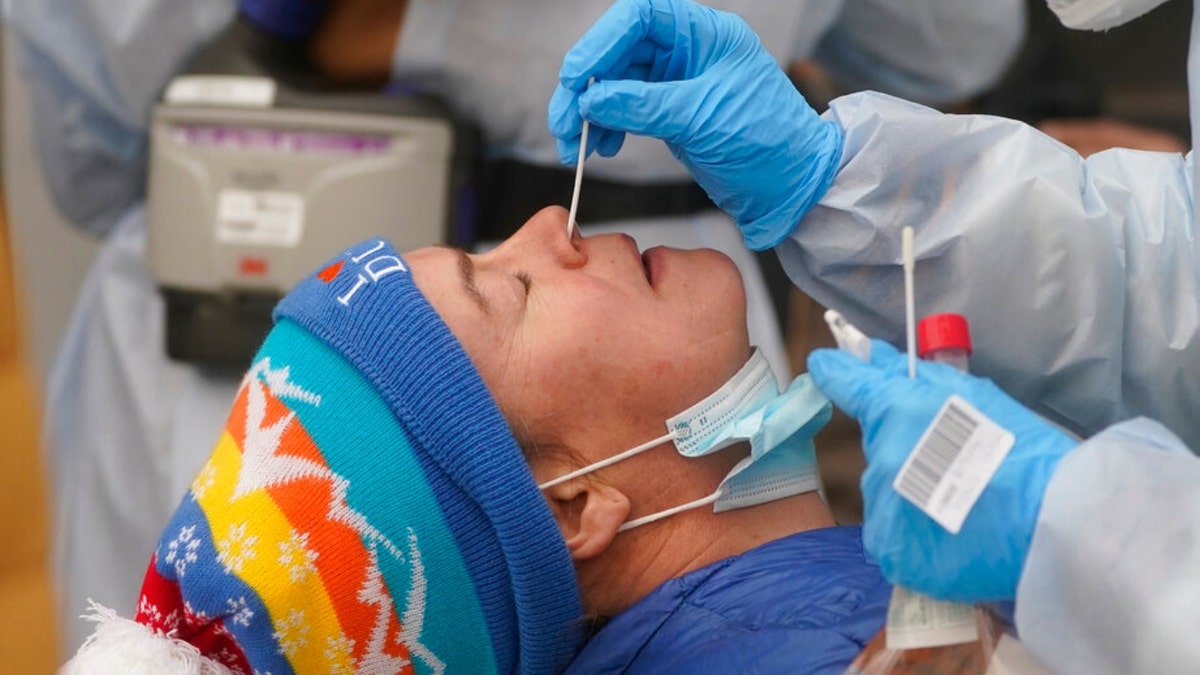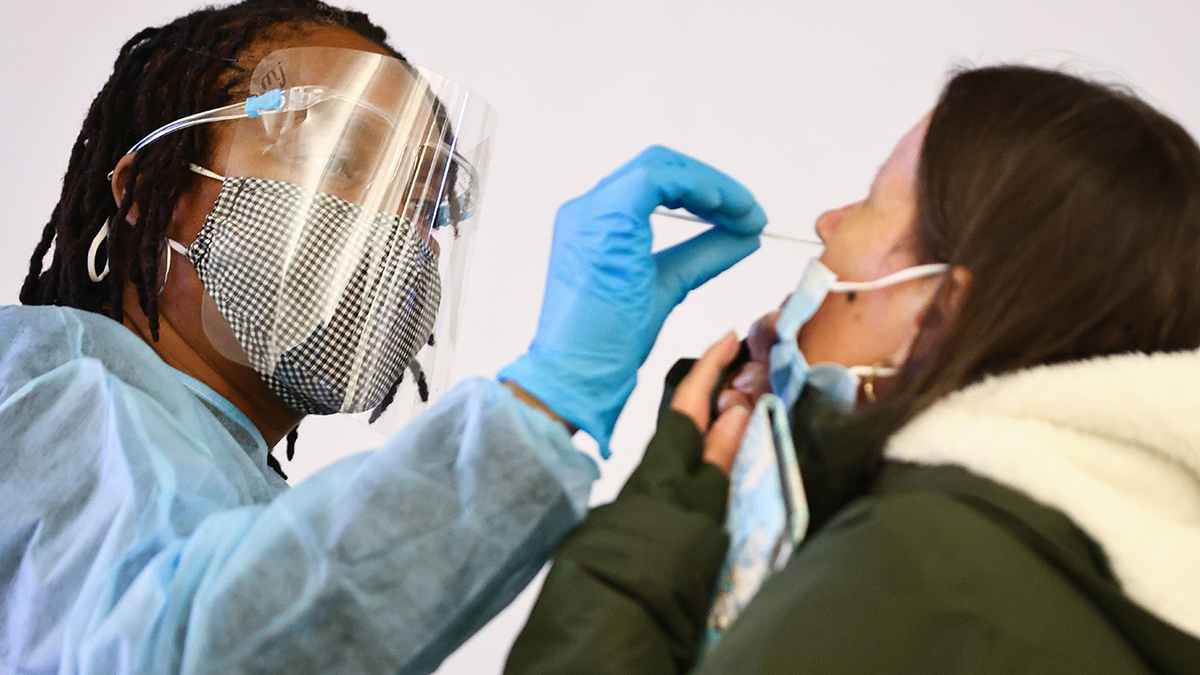Dr. Marc Siegel: People will likely get 'much less sick' from new COVID variant with newer vaccine
Fox News medical contributor Dr. Marc Siegel on the latest COVID subvariant that is raising concerns among some medical professionals who say it evades immunity.
Most people with "long COVID" following a mild case of the COVID-19 virus have their symptoms resolve after a year, according to a new study out of Israel.
"Long COVID" is defined by the Centers for Disease Control and Prevention (CDC) as the long-term effects of a COVID infection, according to the agency's website.
The study, published on Jan. 11, 2023, in The BMJ, a peer-reviewed medical trade journal, examined 1,913,234 patient records from the Israeli HMO Maccabi Healthcare Services.
COVID OMICRON SUBVARIANT XBB: WHY THE NUMBER OF CASES IS LIKELY FAR GREATER THAN REPORTED
The nearly 2 million patients were all tested for COVID-19 during the period between March 2020 and October 2021.
About 300,000 of those patients tested positive for the coronavirus. The researchers then compared those patients to similar patients who did not test positive for the virus.

A member of the Salt Lake County Health Department COVID-19 testing staff performs a nasal swab test on a patient outside the Salt Lake County Health Department on Jan. 4, 2022, in Salt Lake City. (Associated Press/Rick Bowmer)
The study's authors created a list of 70 "long COVID" symptoms and looked into patient records to see if those symptoms persisted after a coronavirus diagnosis.
Anyone who was hospitalized for COVID-19 was excluded from the study, as it was deemed they did not have a "mild" case of the virus.
NEW COVID OMICRON SUBVARIANT XBB.1.5 IS ‘SPREADING LIKE WILDFIRE’ IN US: HEALTH EXPERTS REVEAL WHY
"We wanted to truly understand what are the long-term effects of this infection on the majority of the population and whether we should expect a significant burden on health care providers," senior author Maytal Bivas-Benita and lead author Barak Mizrahi said in a joint email to the health news site STAT.
The study's results were unexpected, said Bivas-Benita and Mizrahi.
"My real concern is that long COVID may go up with recurrent infection."
"As we analyzed the data, we were surprised to find only a small number of symptoms that were related to COVID and remained for a year post-infection, and the low number of people affected by them," the authors told STAT.

Most people who experienced post-COVID symptoms saw those symptoms clear up within a year, said the newly published study. (iStock)
Those who had mild cases of COVID-19, the study found, had an increased risk of a variety of health problems.
Those problems included the loss of smell and taste, difficulties with memory and concentration, breathing difficulties, weakness, strep throat and heart palpitations.
Women in particular had a higher risk of hair loss, said the study.
HEALTHY AGING AND DRINKING WATER: FASCINATING FINDINGS FROM A NEW STUDY
For most of these people, however, these symptoms were gone within a year of their having COVID-19, said the study.
Dr. Mark Siegel, a Fox News medical contributor, clinical professor of medicine and practicing internist at NYU Langone Medical Center, told Fox News Digital that he was not overly surprised by the findings of the study.
"I see a lot of ‘post-COVID’ and I watch it — and hope it goes away."
"There's a distinction between ‘post-COVID’ and ‘long-COVID,’" said Dr. Siegel. "So this study just reinforces that [difference] — that most of the time, the symptoms go away."
"I see a lot of ‘post-COVID’ and I watch it — and hope it goes away. We don't really have a good treatment for it," he added.

The Israeli study examined nearly two million people in Israel who were tested for COVID-19. (Getty Images)
The findings of the Israeli study run counter to another study stating that mild symptoms of COVID correlated with long COVID, said Siegel.
He "didn't buy" the results of that study, said Dr. Siegel — and it was not what he experienced.
CLICK HERE TO SIGN UP FOR OUR HEALTH NEWSLETTER
"The orthodoxy on this is that severe COVID leads to long COVID," he said.
Another issue, he explained, is that the coronavirus pandemic "is still evolving" and that more research needs to be done — and that the term "long COVID" is still in need of a universal definition.
For Siegel, "long COVID" is "any symptom I can pin to COVID that lasts beyond six months."
CLICK HERE TO GET THE FOX NEWS APP
What is most worrying, said Siegel, "is that repetitive infection increases the risk of long COVID. We're now in the phase where that's occurring."
He also said, "My real concern is that long COVID may go up with recurrent infection."








































